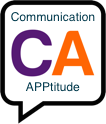I had the amazing blessing of going to Nicaragua for a
mission trip two weeks ago. The land is beautiful. The faces of so many are
beautiful. The financial poverty is astounding, with many there making less
than a dollar a day in income. The educational need is great. Although there is
a public school system, it seems many parents choose not to send their children
because, “I never went, why should I send my children?” or, “I need my child
here with me picking trash so we can afford to eat this week,” or, even more
surprisingly, “I don’t have money to buy a uniform for my child, so I won’t
send him” (although uniforms are not required, they are encouraged).
I had the opportunity to build friendships with several
families and their children through a local church initiative. Their physical hunger is being addressed
through the non-profit organization.
However, I found it interesting to see the hunger the children had to
learn English. I did not realize that
knowledge of English can be a ticket out of living in the trash dumps for these
children. And English is only taught in private lessons or in private-pay
schools, so very few children have the opportunity.
What an amazing time we had playing games like Uno and baseball. They had fun looking at photos and videos on my iPad where they found our
InferCabulary app.
It was an incredible opportunity for me to
watch how the visual method really did work for someone who did not know any
English.
Our focus has been on how
InferCabulary helps students with learning disabilities, but I was amazed at
how quickly and accurately these girls were at inferring what words like
“boulder” and “perplexed” meant, without my needing to explain or define the
words in their language.
They enjoyed
using their visual inference skills to guess, and kept asking for more words.

This opportunity made me realize our need to assess the efficacy and
value of using the
InferCabulary method with those learning English as a second
language.
We look forward to working
with the program, and remain hopeful that we may get to play at least a small part
in opening doors to a better life for these children. I know my life was changed by spending time with them.
 We first practice this script with stories that are familiar: Three Little Pigs, Goldilocks and the Three Bears or Little Red Riding Hood. Once they are able to use this format with familiar stories, we move on to creating original stories (narratives). Analyze stories you are familiar with using this format and then create your own story. The next time you read a book (children or adult), analyze the story phrases see what figurative language our students are expected to understand.
We first practice this script with stories that are familiar: Three Little Pigs, Goldilocks and the Three Bears or Little Red Riding Hood. Once they are able to use this format with familiar stories, we move on to creating original stories (narratives). Analyze stories you are familiar with using this format and then create your own story. The next time you read a book (children or adult), analyze the story phrases see what figurative language our students are expected to understand.





